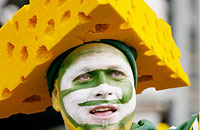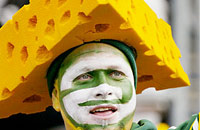Favorite Wisconsin Cases to Teach: State v. Oakley
 It’s unusual for a law review in one state to devote an issue to a decision from the supreme court of another state, but that’s exactly what happened when the Western New England Law Review published a 2004 symposium issue concerning State v. Oakley, 629 N.W.2d 200 (Wis. 2001). I personally welcome the opportunity to teach and, in the process, critique the decision.
It’s unusual for a law review in one state to devote an issue to a decision from the supreme court of another state, but that’s exactly what happened when the Western New England Law Review published a 2004 symposium issue concerning State v. Oakley, 629 N.W.2d 200 (Wis. 2001). I personally welcome the opportunity to teach and, in the process, critique the decision.
The case involved David Oakley, who fathered nine children with four women and was impossibly behind on his child support payments. Manitowoc County Circuit Court Judge Fred Hazlewood placed Oakley on probation following his conviction for refusing to support his children. However, the probation was conditioned on Oakley having no more children until he could support the ones he already had. A four-judge majority of the Wisconsin Supreme Court confirmed Hazlewood’s order.
Commentators predictably discussed the decision’s ramifications for the right to procreate and the larger right to privacy.


